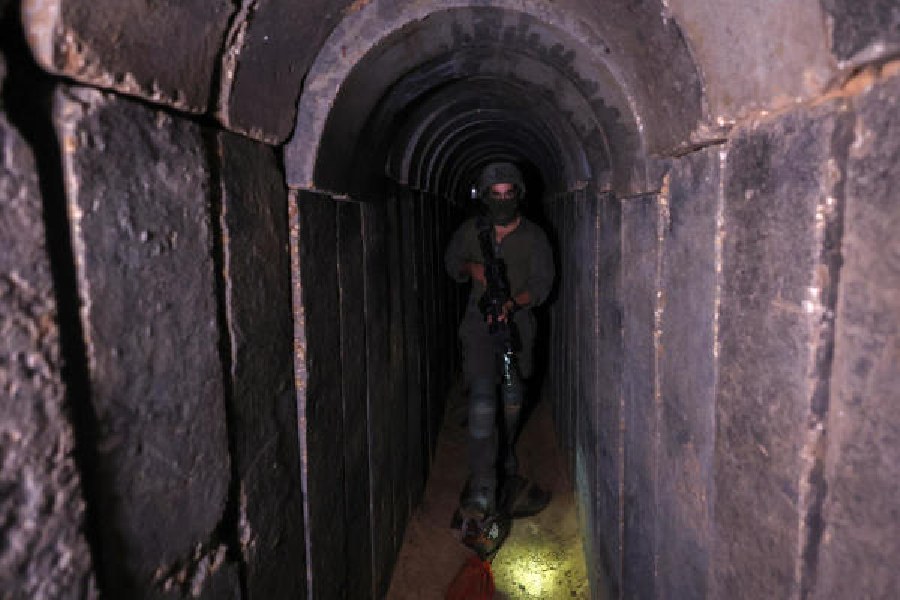After more than six weeks of war, the Israeli government and Hamas announced on Wednesday morning that they would uphold a brief cease-fire in the Gaza Strip to allow for the release of 50 hostages Hamas captured during its assault last month on Israel.
The decision, first announced by Prime Minister Benjamin Netanyahu’s office in a WhatsApp message, includes a pause of at least four days in the fighting in Gaza. If it holds, it would be the longest halt in hostilities since Hamas’ October 7 attacks prompted Israel to begin its bombardment and ground invasion of Gaza.
“The Israeli government is committed to the return of all abductees home,” the government said. It added: “Tonight, the government approved the outline for the first stage of achieving this goal, according to which at least 50 abductees — women and children — will be released for four days, during which there will be a lull in the fighting. The release of every 10 additional abductees will result in an additional day of respite.”
In its own statement on Telegram, Hamas affirmed the deal, saying, “After many days of difficult and complex negotiations, we announce, with the help and blessing of God, that we have reached a humanitarian truce.”
Hamas added that the 50 Israelis would be freed in exchange for the release of 150 Palestinian women and detainees younger than 19 held in Israeli jails.
The Israeli hostages may not be released until Thursday at the earliest to allow time for Israeli judges to review potential legal challenges to an agreement, according to an Israeli official.
Qatar, the lead mediator of the deal, did not immediately comment.
Under the terms of the deal, according to the Hamas statement, 50 Israeli women and children would be freed in exchange for the release of 150 Palestinian women and other detainees younger than 19. Its statement said that Israel had also agreed to let in more aid supplies to Gaza; continue to allow civilians to evacuate northern Gaza; and halt its flights over Gaza except for a six-hour window every day.
Israel’s statement did not include those details, but the two officials said that Israel had agreed that Israeli troops would remain in their current positions. Civilians currently in southern Gaza will not be allowed to return to the north, the officials added.
But the Hamas statement also said, “While we now announce the arrival of the truce agreement, we affirm that our hands will remain on the trigger, and our triumphant brigades will remain on the lookout to defend our people and to defeat the occupation and aggression.”
Before Israeli ministers voted to approve the hostage deal, Benny Gantz, a member of Israel’s emergency war cabinet, said the deal was “hard and painful from a human perspective”. But he called it the best possible option to allow Israel to continue “pursuing the campaign” against Hamas.
Netanyahu, who said this week that freeing the hostages was a “sacred and supreme task”, has been under public pressure to reach a deal. Hamas seized some 240 hostages when it attacked Israel on October 7 and killed about 1,200 people, according to Israeli officials.
This month, anguished families of some of the hostages marched from Tel Aviv to Netanyahu’s office in Jerusalem, holding up posters of the captives and beseeching him to do more to bring their relatives home.
President Joe Biden also sounded optimistic on Tuesday. “We’re now very close, very close,” he told reporters at the White House on Tuesday morning. “We could bring some of these hostages home very soon.”
The US has been engaged for weeks in indirect talks with Israel, Hamas and Qatar to secure an agreement.
The hostages were seized from homes along Israel’s border, as well as from military bases and a large outdoor music festival.
They included civilians, soldiers, people with disabilities, children, grandparents and a 9-month-old baby. The captives also included people from more than 40 countries, at least 20 Thai farmworkers and at least one Palestinian resident of Israel.











